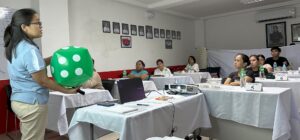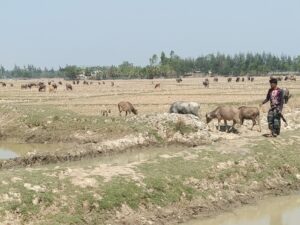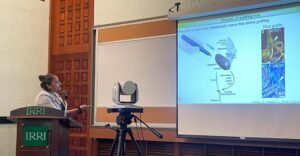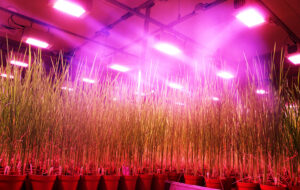NAY PYI TAW, Myanmar – The Republic of the Union of Myanmar is poised to not only transform its rice sector but to also recapture its prominence in the international rice market.
The Myanmar government made this commitment via the launch of the Myanmar Rice Sector Development Strategy (MRSDS) on 20 May 2015 at the Department of Agricultural Research in Nay Pyi Taw.
The MRSDS was drafted by the Myanmar government, led by its Ministry of Agriculture and Irrigation (MoAI), with technical input from the International Rice Research Institute (IRRI) and international partners such as the Food and Agriculture Organization of the United Nations (FAO) and the World Bank.
Myanmar President U Thein Sein said the MRSDS symbolizes the collaboration between his country and IRRI toward a food-secure future for Myanmar and the rest of the world. He cited the work of IRRI scientists in the development of pest- and disease-resistant and stress-tolerant rice varieties; improved cropping systems; postharvest technologies; and better soil, pest, and water management practices that have raised productivity of rice systems in Myanmar, greatly benefiting smallholder farmers.
IRRI Director General Robert Zeigler said that “the wonderful scientific achievements of IRRI need to be combined with development strategies and coherent programs that governments are willing to implement over a long period of time” to ensure that farmers have access to and are able to use these.
Zeigler added that having a government demonstrably willing to transform and develop its rice sector, an environment conducive to rice production, and growing global demand for rice make Myanmar a good opportunity for investment.
U Myint Hlaing, Myanmar’s minister for agriculture and irrigation, said it is possible to break the cycle of poverty and hunger by “strengthening rural resilience, achieving social protection, and sustaining agricultural development,” all of which can be achieved through a clear road map for sustainable rice sector development such as that detailed in the MRSDS.
Also during the launch, Zeigler awarded a special rice memento to honor the Myanmar president for his visionary leadership of the rice sector and to commemorate the visit the president and his cabinet members made to the IRRI headquarters in Los Baños, Philippines, in December 2013.
A donors’ forum was held alongside the launch of the MRSDS, to provide international agencies the opportunity to discuss their respective efforts for the Myanmar rice sector. The forum, facilitated by Corinta Guerta, IRRI director for external relations, was attended by representatives from the FAO, Japan International Cooperation Agency, The World Bank, International Fund for Agricultural Development, Livelihoods and Food Security Trust Fund, Welthungerhilfe, Mercy Corps, Food Security Working Group, Action Aid, International Fertilizer Development Center, Proximity, Korean International Cooperation Agency, and the Rural Development Administration.
IRRI has been working with the government of Myanmar since the early 1960s.










